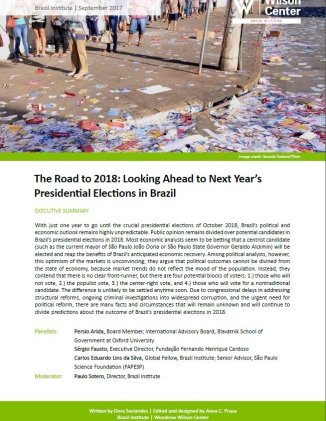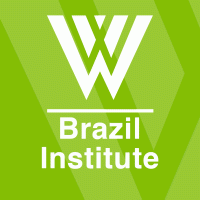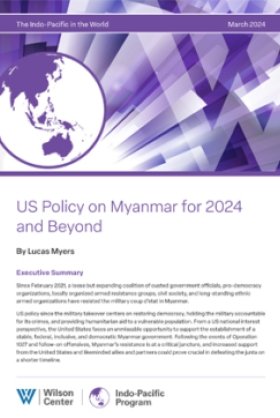Event Summary: The Road to 2018: Looking Ahead to Next Year’s Presidential Elections in Brazil


With just one year to go until the crucial presidential elections of October 2018, Brazil’s political and economic outlook remains highly unpredictable. Public opinion remains divided over potential candidates in Brazil’s presidential elections in 2018. Most economic analysts seem to be betting that a centrist candidate (such as the current mayor of São Paulo João Doria or São Paulo State Governor Geraldo Alckmin) will be elected and reap the benefits of Brazil’s anticipated economic recovery. Among political analysts, however, this optimism of the markets is unconvincing; they argue that political outcomes cannot be divined from the state of economy, because market trends do not reflect the mood of the population. Instead, they contend that there is no clear front-runner, but there are four potential blocks of voters: 1.) those who will not vote, 2.) the populist vote, 3.) the center-right vote, and 4.) those who will vote for a nontraditional candidate. The difference is unlikely to be settled anytime soon. Due to congressional delays in addressing structural reforms, ongoing criminal investigations into widespread corruption, and the urgent need for political reform, there are many facts and circumstances that will remain unknown and will continue to divide predictions about the outcome of Brazil’s presidential elections in 2018.
About the Author

Brazil Institute
Read More
Brazil Institute
The Brazil Institute—the only country-specific policy institution focused on Brazil in Washington—works to foster understanding of Brazil’s complex reality and to support more consequential relations between Brazilian and US institutions in all sectors. The Brazil Institute plays this role by producing independent research and programs that bridge the gap between scholarship and policy, and by serving as a crossroads for leading policymakers, scholars and private sector representatives who are committed to addressing Brazil’s challenges and opportunities. Read more









